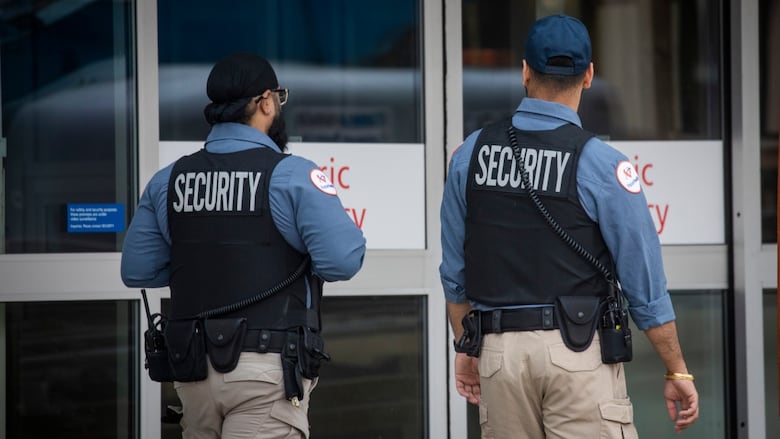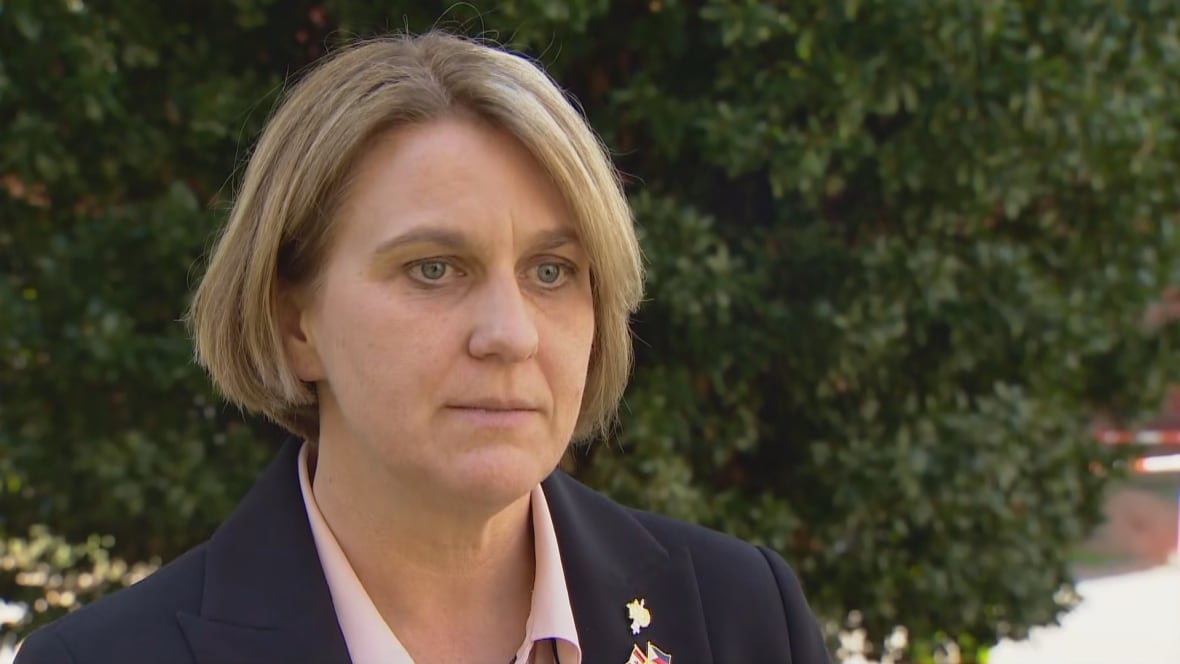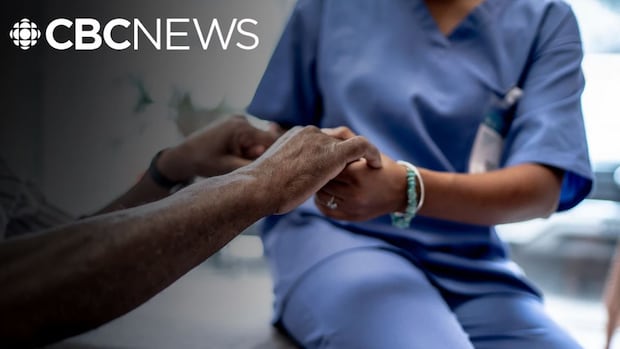WorkSafeBC data shows 'concerning' rate of injury among hospital security guards
3 relational security guards tell CBC News they've being punched, kicked, spat on

It's been nearly two years since the province created a new class of hospital security guard, relational security officers or RSOs, in response to high-profile assaults against nurses and health care staff.
Different from a typical security guard, the province says the new position focuses on trauma-informed training and de-escalation and prevention.
But new data obtained by CBC News shows the employees meant to keep hospitals safe are themselves being injured at an alarming rate.
WorkSafeBC data for accepted short and long-term disability claims by hospital security guards show nearly 170 accepted injury claims last year.
At that rate, it means security guards meant to protect health-care staff and patients from violence are being injured nearly every other day.
Accepted injury claims were highest in Fraser and Providence Health: 50 accepted claims in Fraser Health, 46 in Providence Health.
Security guards in Interior Health were off work due to injury 27 times, 22 times in Vancouver Coastal Health. There were 20 accepted injury claims in Island Health.
Three relational security guards who work in Lower Mainland hospitals spoke to CBC News, describing the injuries they've experienced on a regular basis, which have led to WorkSafeBC claims, time off work and physical and emotional injuries.
CBC News is protecting their identities and workplaces because they're worried about punishment for speaking out.
"I've scratched up my knee. I've broken skin," one security officer told CBC News. "Being spat on, being headbutted, being bitten by violent patients."
His job is to keep nurses, doctors and patients safe inside B.C. hospitals. But he says that the job often puts him and his colleagues at risk. And the three officers say they're not being given the training or the tools to keep themselves safe.
Most hospitals use a mix of RSOs — who are unionized health authority employees — and private security guards.
The injury rates are a concern for the Hospital Employees' Union (HEU), which represents the province's 750 RSOs.
"It's concerning. That could be the tip of the iceberg," says Lynn Bueckert, secretary business manager for the HEU. "Not all workers report for a whole bunch of reasons."
The three RSOs who spoke to CBC say the health authorities are placing limits on the tools and de-escalation techniques they can use when someone becomes violent.
For example, RSOs working in Fraser Health and Providence Health are not allowed to use handcuffs to restrain a violent individual.
Those who spoke to CBC News say that puts them at further risk of injury as they try to hold someone until police arrive.
"Sometimes we have to call the police to help us restrain them because they're so violent and we're being assaulted," one security officer said.
"When it comes time to actually dealing with violence, dealing with assaults on staff, dealing with threats and property damage, we don't have the tools to take care of the problem effectively. I feel that we're social workers that carry a radio and a set of keys."
Critic wants peace officers
B.C. Conservative public safety critic Elenore Sturko says the injury rates should be a wake-up call that the current system is not working.
"Seeing the number of injury claims that have been reported to WorkSafe by RSOs is further confirmation that they are not adequately trained to deal with the level of violence they are seeing in the workplace," she said.

Sturko would like to see the province employ peace officers in hospitals. They'd be equipped with a firearm, Taser and handcuffs and undergo an intensive six-week training course, similar to transit police.
That's the system that exists in Alberta hospitals.
There, protective services officers must complete a six-week training course, which is similar to that provided to correctional officers or sheriffs.
The union echoes the call for better training and higher staffing levels.
"We know from talking to our members they need more training … in de-escalation," Bueckert said. "They also need more staffing."
However, the union does not support putting peace officers in hospitals.
"Relational security guards are not protecting buildings, they're protecting people. And people come into health care with very challenging needs," Bueckert said.
Fraser Health says in a statement RSOs undergo rigorous training, which is tailored to the complex needs of the health-care environment.
The health authority says it is reviewing its policy on security teams' use of handcuffs and expects officers to be able to use them in the coming months.

Health Minister Josie Osborne was not available for an interview, but the Health Ministry says it is looking into other tools to make hospitals safer, such as using artificial intelligence to detect weapons in emergency rooms — something that's been done in other Canadian hospitals.
For the relational security guard who spoke to CBC News, the changes can't come fast enough.
"I hope there's some sort of acknowledgment that what we have right now, it's not working as it's intended. We're just seen as a group of people who are called upon to get abused, to bear the brunt of the violence that goes on, so no one else has to."




